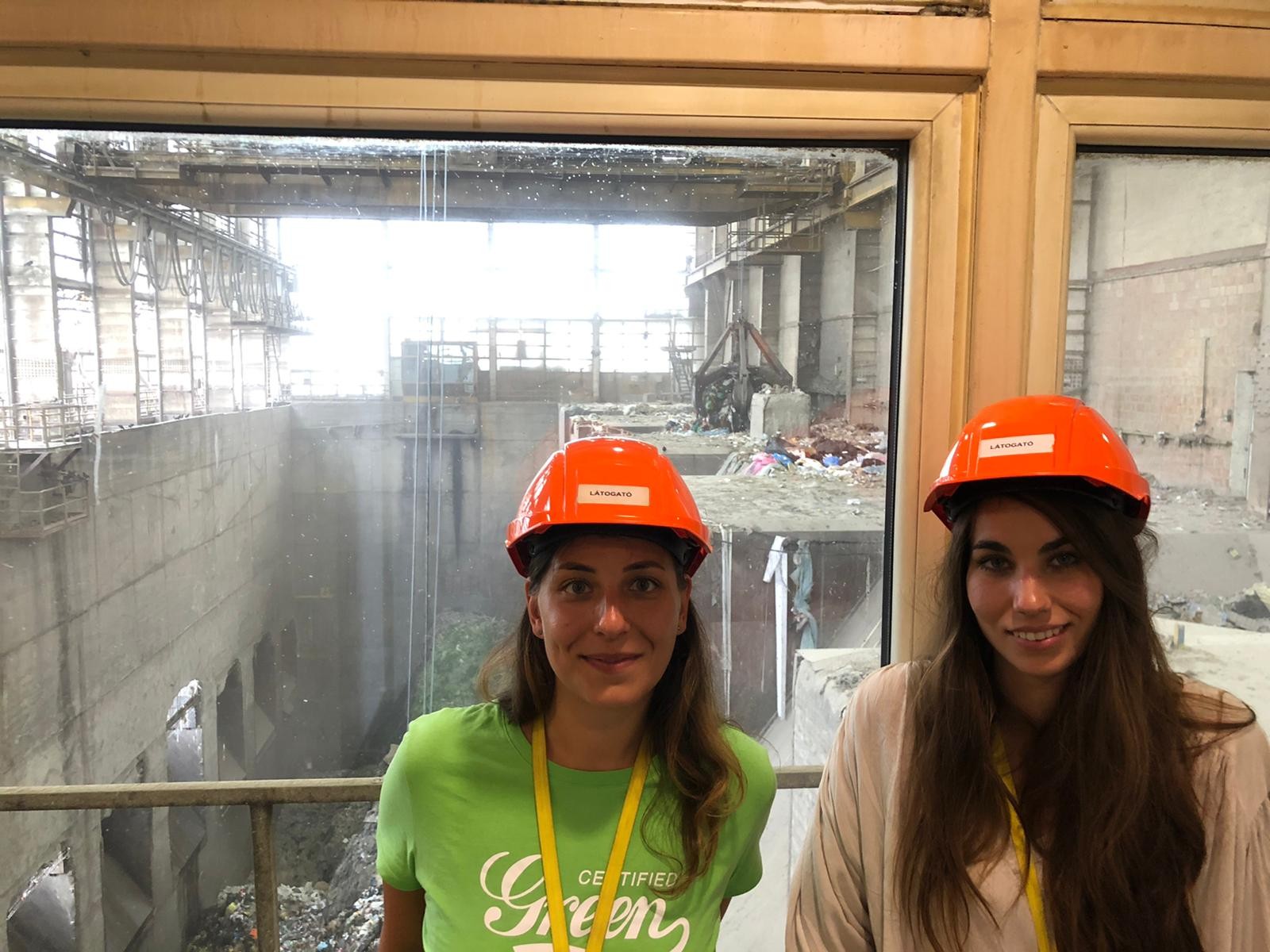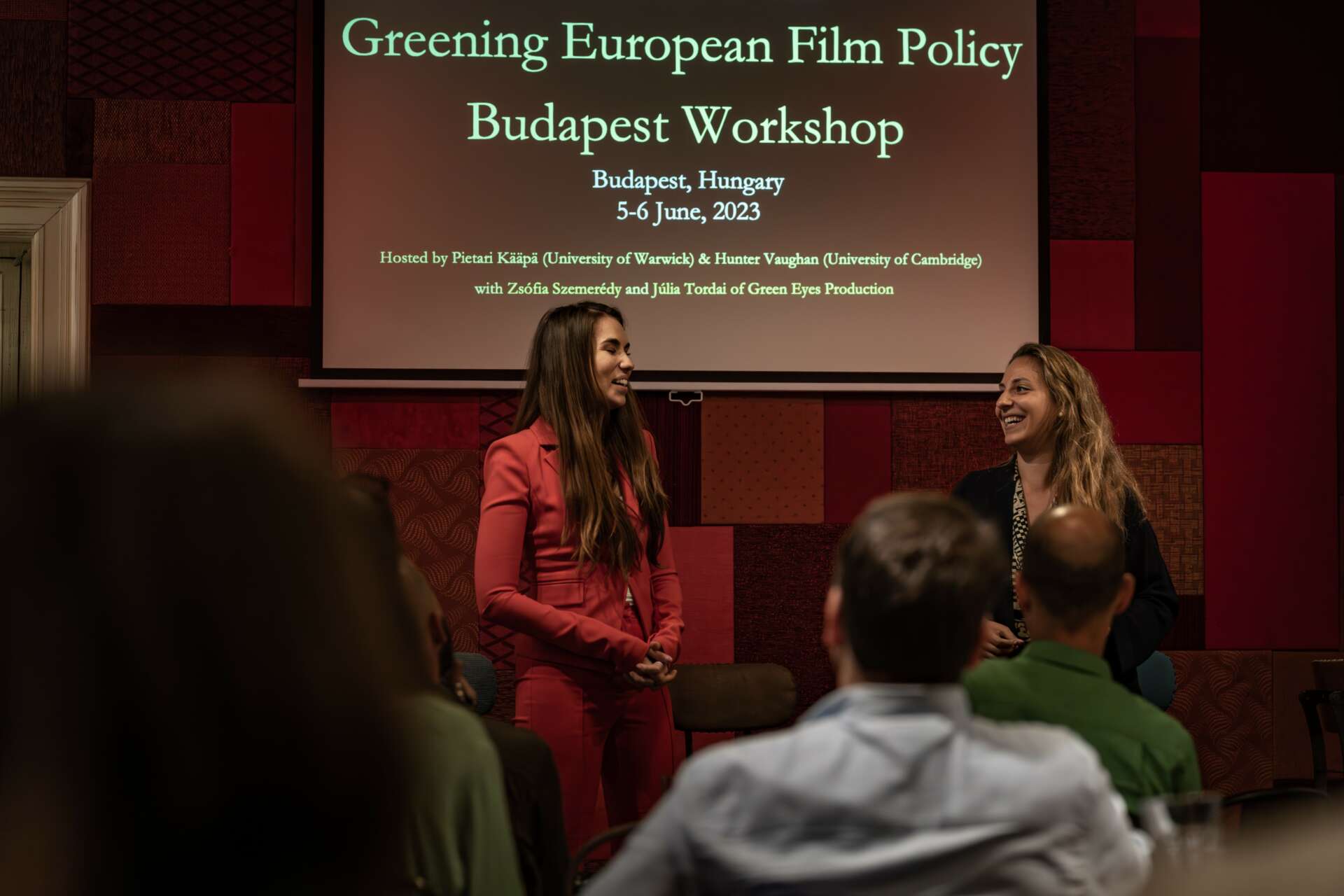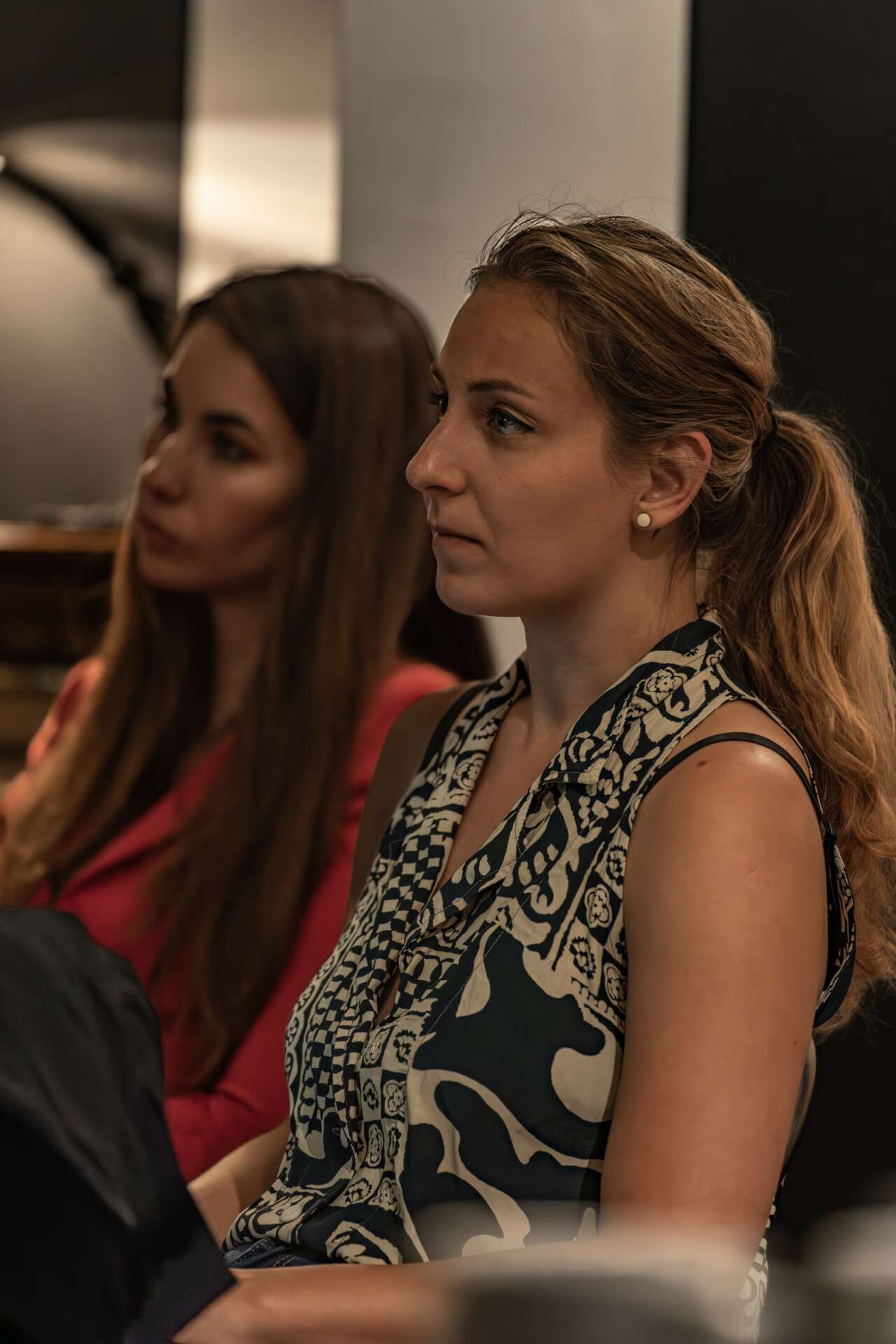We were lucky to catch up with Zsofia Szemeredy recently and have shared our conversation below.
Alright, Zsofia thanks for taking the time to share your stories and insights with us today. Naming anything – including a business – is so hard. Right? What’s the story behind how you came up with the name of your brand?
We were at Mafilm, Fot, Hungary, shooting the Hunt series. It was the first project my business partner, Julia Tordai and I met on. We were always discussing how it would be good to do something about sustainability in this industry, while standing under the scorching sun on the set, and I remember the name just came to us. We were like it’s perfect: it’s us, but it also means the camera lenses. So, we said: Wouldn’t it be fun if we had a company named Green Eyes? Fast forward 3 years: www.greeneyesproduction.com


Zsofia, before we move on to more of these sorts of questions, can you take some time to bring our readers up to speed on you and what you do?
Green Eyes examines a project’s full life cycle, from the script stage through pre-production, production, post-production, all the way to the final stages of festival, sales, and distribution windows. I’d like to say we are a 360 company, from Script to Screen but for specific sustainability needs. Our aim is to achieve the sustainability goals of each company that comes to us, in a manner that best suits the company’s specific needs and workflows, with the ultimate goal of creating a livable world for everyone. We work with experts in specific fields to provide a really well-rounded service across the UK, Hungary and the wider CEE and Europe.
Our motto is ‘livable sustainability.’ We assess a project and assist a in developing a tailored, effective plan to become more carbon-neutral. At the end of each project, we provide a calculation and a detailed report. On production, trained sustainability runners and coordinators are deployed to supervise the productions, facilitating crew understanding and engagement with our sustainability efforts. We provide all signage and communication materials, along with regular data collection for the production to monitor progress and ensure compliance with pre-existing sustainability guidelines such as PEACH/PEAR or Albert.
Beyond our standard services for production companies, TV companies and commercials we also work with game companies, suppliers (such as prop, construction companies, location companies, rentals etc.) sound stage studios, universities, crew and more. We provide training for executives, showrunners and anyone who needs it. We developed a sustainability script report and a development / greenlight training, we also do albert studio certificate for sound stage studios and much more. We constantly expand the roster of our services to cater for the needs of the industry. We are very open to new ideas, collaborations so we encourage everyone to get in touch with us if our work is appealing.

Can you share a story from your journey that illustrates your resilience?
When I was living in London and had just finished my bachelor’s, I had set my eyes on the biggest ambition I could think of: applying to one of the most prestigious film schools in the world. It was like Hogwarts to me. I applied, but didn’t get accepted, the feedback was I am too young and should work a bit in the industry. I took the next year to work, support myself, and do as many internships and runner jobs as I could – it’s often a difficult position to be in, internships were rarely paid at the time and I had to work to support myself on top of what I considered my true calling. The next year I promptly applied again. I got through the rounds of interviews, had the required network, knew the teachers, volunteered on NFTS short films, yet I didn’t get accepted. Then, in the same month, I got a call from one of the course-leaders, Chris Auty, that I should apply one more time, there’s a new MA course run by Debbie Rowland that is perfect for me. I did so and gained acceptance. I was over the moon. However, my next hurdle was financial. I had been supporting myself since I was 19 and living in the UK. I didn’t have the means to pay for another university, and since it was a two-year MA course, the postgrad loan wouldn’t cover it. I was happy just scraping away, paying for my accommodation and food, let alone finding resources for a lavish tuition fee. I remember the day I got the news: I was at the London Screenwriters Festival’s office working. I jumped up, started to celebrate, then burst into tears when I realised I didn’t have the means to pay for it. (When I applied, I knew it already, of course, but I thought, let’s take the hurdles one at a time). So, my then-boss pulled me over and said he knew a guy who had put himself through NYU with a crowdfunding campaign. I was doubtful, but then slept on it, and the next week I did my own Indiegogo campaign. I raised over 5.5k GBP; this was not enough for half of the first year, as impressive as it was. However, the director of NFTS had seen my campaign, and – I think it might have even been Christmas day – I got an email that congratulated me on my campaign and offered me a scholarship, saying if I’m this dedicated to get in, I shall! Then on, I received every scholarship I could apply for, including a CTBF award that was never awarded to anyone before who worked in distribution. I wasn’t just proud; I was immensely grateful I got a chance to prove myself and I felt extremely privileged I had so many people supporting me, encouraging me and telling me I can do this!

We’d love to hear about how you met your business partner.
I just completed my master’s, and I thought the world was my oyster. I knew that I have a fantastic overview of the film chain, the market, the industry players, etc all thanks to the high-quality education, the great industry professionals who thought us at the NFTS. However, I was at a disadvantage, as I’ve only been on short film sets, never on a large film set. I thought this to be a real issue – how can I work in this industry if I don’t know how a production really works, how a set looks like, what happens there every day? (later when I was working at BAFTA albert, this experience proved to be a real advantage). I asked Ildikó Kemény, who gave me my reference to the NFTS, if I could gain some experience on one of her films. So I ended up as a producer’s assistant in Hungary on the Hunt series’ pick-up shoot. It’s that show where I met Julia, who was working in the production office. We got talking in the kitchen and realised there’s a lot in common, we both urgently care about sustainability within this industry. However, at the time I still lived in the UK and I had to go back as I was a marketing exec at a talent agency and I couldn’t stay any longer (took out my holidays for the production assistant job). A few months had passed; I started working at a production company , BAFTA Rocliffe as a development executive and came to Hungary and worked remotely. As COVID hit, we had more time on our hands and started reaching out to studios and streamers to learn more about their stance on sustainability. Then one day we got an email from MARVEL… and GreenEyes had started.

Contact Info:
- Website: https://greeneyesproduction.com/
- Instagram: https://www.instagram.com/greeneyesfilmprod/?hl=en
- Facebook: https://www.facebook.com/GreenEyesFilmProd/
- Linkedin: https://www.linkedin.com/company/greeneyesfilmprod/?originalSubdomain=hu
- Twitter: https://twitter.com/i/flow/login?redirect_after_login=%2FGreenEyesFilm


